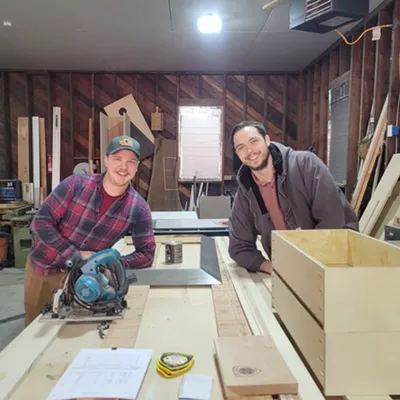It’s an almost universal sign: chest pain suggests something going on with your heart. So if it’s not a heart attack that requires immediate attention, you make an appointment with a cardiologist.
But what if the pain is much lower — radiating down your leg or even causing tingling and numbness in your big toe? Who do you see then? What kind of doctor specializes in… tingly toe pain?
Dr. T. Daniel Dibble, who founded Spine Team Spokane, would suggest you see someone like him. And, no, he doesn’t specialize in toes. Rather, he is board certified in pain medicine and specializes in the spine and back. It’s possible that pain or tingling you feel in your toe or foot stems from nerves in your lower back.
Not all back problems and pain are created equal, and it is sometimes difficult to tell whether radiating pain is coming from a back problem or a crimp in a nerve somewhere else along its trajectory. There are, however, three general conditions treated by Dibble and his fellow practitioners:
Stenosis
Narrowing of the spinal canal, causing pressure on major nerves in the lower back that affect functions in the legs and feet.
Facet Joint Disease
Also known as back arthritis, this is caused by inflammation of the facet joints that jut out from the vertebra surrounding your spinal column. When they rub together and become inflamed — and new bone starts to grow — they hurt, causing what most people would think of as back arthritis.
Degenerative Disc Disease
Mostly a catch-all to describe several conditions, but largely the reduction in “padding” of the discs that act as cushions or shock absorbers between vertebra.
Dibble focuses on non-surgical treatment of back and neck pain, using a combination of injecting non-steroidal anti-inflammatory medicine and physical therapy.
“Our clinic is full of people who have had surgery, and it’s not worked out well for them,” Dibble says. “If you do a major surgery, it may solve one problem that you’re after. But it may lead to several other problems down the road.”
Another option for treating some types of back pain is acupuncture. Rebecca Kemnitz, who has operated South Hill Acupuncture in Spokane since 2004, is a Washington state licensed acupuncturist, as well as a former back-pain sufferer from sports injuries. Acupuncture gave her relief and healing.
Kemnitz recognizes that acupuncture isn’t a miracle cure for everything that ails you, but in some cases of back pain, it can help ease symptoms.
“Different bodies have different reactions to acupuncture. It works at several levels. It’s antiinflammatory, reduces pain, reduces substances in the brain that recognize pain,” she says. And there’s little downside. “If it’s just not working, we can say we’re wasting time.”
Sometimes, however, conservative approaches just won’t work. “There are things for which surgery is absolutely necessary,” says Dibble. “And we connect our patients for the best possible surgeon for that type of problem.”
Still, Dr. Benjamin Ling, a neurosurgeon with Inland Neurosurgery and Spine Associates, says he and his colleagues are conservative in recommending a trip to the OR for people with back pain. “Maybe 15 to 20 percent of back-pain patients are actual candidates for surgery,” he says.
AVOIDING BACK PAIN
There are a number of factors that cause common back and spine problems, some of which are completely unavoidable. Family history and genetics play a role. But the chief culprit? Age. Every person will experience some form of degenerative disc disease, says Dr. Daniel Dibble. Not everyone will experience pain. Good posture and careful body mechanics are obviously key to preventing back pain. But there are other, less obvious ways to keep your back healthy.
Healthy Eating
“As always, having a good, healthy diet is helpful,” Dibble says.
Avoid Smoking
As if you needed another reason not to smoke. Smoking reduces the amount of oxygen that gets to your back’s discs. In fact, Dibble notes, “There are many surgeons who won’t do a surgery if the person is a smoker.” Why? Because oxygen may not flow in sufficient quantity to the area that’s been worked on.
Dr. Benjamin Ling, a surgeon, agrees. “There’s clear evidence that smoker’s bones heal slower than non-smokers,” he says, meaning smoking can both exacerbate back problems and impede surgical recovery.
Low-Impact Exercise
Think of the discs in your back like shocks in a car. They absorb vibrations and stress as part of their job, and low-impact exercise helps oxygen flow more freely. However, lots of high-impact exercise, such as running, is like constantly taking your car offroading on bumpy, rocky roads: The shocks will likely wear out quicker.
Lose Weight
It’s pretty simple: More weight, in any part of the body, puts more stress on the lower back. Back stress only get worse when you bend or reach for heavy objects on overhead shelves. But not only can excess weight cause back problems, it can also complicate recovery from procedures meant to treat the problems. Quite simply, “Obesity makes things difficult,” says Ling.















